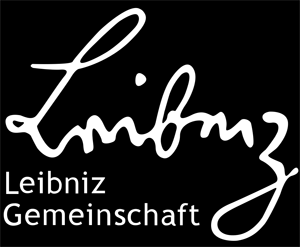EU-OPENSCREEN ERIC is officially announced in the European Official Journal of the EU. The Leibniz-Forschungsinstitut für Molekulare Pharmakologie (FMP) is involved in the setting up of the infrastructure in Germany, which is funded by the German Federal Ministry of Education and Research (BMBF) with several million Euro, including the setup of the EU-OPENSCREEN central compound library in Berlin-Buch.
EU-OPENCREEN-ERIC (European Research Infrastructure Consortium) with its distributed research infrastructure offers researchers from Europe and around the world open access to a uniquely broad range of high technologies and tools for the systematic screening of chemical substances for their biological effects. The diversity of chemical substances is virtually infinite, as is the diversity of their effects. EU-OPENSCREEN - ERIC will pool the valuable expertise and resources scattered across Europe and make the collected results and data available in an open access database to support research in the life sciences and their implementation in medicine and agriculture. This will ensure excellent competitive research and development in all areas of the life sciences in Germany and Europe.
EU-OPENSCREEN-ERIC with its headquarters based in Berlin on the Science Campus Buch was founded by 7 European Member States: the Czech Republic, Finland, Germany, Latvia, Norway, Poland and Spain. Denmark will participate as an observer and as a full member from 2019. Seven more countries are preparing their participation. The founding members will appoint the future director of EU-OPENSCREEN ERIC at the constituent assembly in Berlin on April 12, 2018.
The primary objective of EU-OPENSCREEN is to create a distributed research infrastructure which meets the needs of its user groups - scientists seeking a better understanding on how fundamental molecular processes act to govern biological function at the organismal, tissue, cellular and pathway levels. The majority of these scientists in Europe, however at present, do not have access to such technology platforms and compound collections, which are generally very costly to purchase, operate and maintain. EU-OPENSCREEN will cost-effectively overcome these limitations by involving and providing access to Europe’s leading screening platforms and chemistry groups, constructing a jointly used compound collection and operating an open-access bioactivity database which will be accessible on a global basis.
24 institutes (screening centres and chemistry centres) and a data centre were selected as partner institutes of EU-OPENSCREEN ERIC in the member countries in an independent evaluation process. The Leibniz-Forschungsinstitut für Molekulare Pharmakologie (FMP) in Berlin, the Helmholtz Centre for Infection Research (HZI), Braunschweig, the Max Delbrück Centre for Molecular Medicine (MDC), Berlin, and the Fraunhofer Institute for Molecular Biology and Applied Ecology (IME), Hamburg, are involved in setting up the infrastructure in Germany. The BMBF will support EU-OPENSCREEN ERIC with several million Euro. This investment will enable the setup of EU-OPENSCREEN´s central compound library at the Berlin-Buch site and the technological up-grade of the German facilities.
With EU-OPENSCREEN, Germany as the host country takes an active role in the generation and use of knowledge on chemical substances and their biological effects. Germany is thus making a decisive contribution to guaranteeing top-level research in Germany and Europe in order to address the grand societal challenges in the fields of health, nutrition and the environment.
EU-OPENSCREEN is already cooperating with thirteen of the new Biomedical Sciences (BMS) research infrastructures in the European cluster project CORBEL to jointly create harmonised access for users to their complementary biological and medical technologies, biological samples and data services required for state-of-the-art biomedical research and development. To promote new applications derived from marine organisms in areas such as drug discovery, novel foods and food ingredients, selective breeding in aquaculture, biosanitation, cosmetics and bioenergy, EU-OPENSCREEN is also part of the European cluster project EMBRIC. Beyond Europe, EU-OPENSCREEN cooperates with similar consortia in the USA and Australia.
The creation of the European Research Infrastructure Consortium EU-OPENSCREEN ERIC was officially announced in the European Official Journal of the EU on March 21, 2018.
Background:
Research into biological processes through the targeted influence of chemical substances (chemical probes) has developed into an independent, interdisciplinary and forward-looking research discipline with high application potential, the chemical biology.
Findings from chemical biology such as the development of new biologically active substances, the elucidation of their mechanisms of action and the collected knowledge about the biological effects of chemicals are of central importance for all areas of life sciences. Active chemical ingredients are the classic means for the treatment of diseases in humans and animals, for the control of pests in agriculture and in food production, and much more. EU-OPENSCREEN will further the understanding of physiological and pathological processes as the basis for knowledge-based innovations. By doing so, EU-OPENSCREEN will contribute significantly to the development of innovative new active ingredients to address the grand societal challenges such a “healthily ageing and growing population”.
Chemical substances can also have unexpected side effects. Only a broad knowledge of the effects of chemical substances on biological processes will safeguard future nutrition, lifestyle and (personalised) medicine.
Contact:
EU-OPENSCREEN COORDINATION TEAM
| Leibniz-Forschungsinstitut für Molekulare Pharmakologie (FMP) Silke Oßwald, Public Relations Robert-Rössle-Str. 10, 13125 Berlin osswaldfmp-berlin.de Tel.: +49 30 94793 104 |

